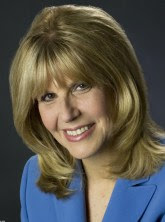My Appearance on CNN: What it Means and What it Doesn't
My appearance on CNN's New Day on early Sunday morning, November 29, has gotten a lot of publicity, especially from those on the political right, crowing that I stuck it to CNN and their "leftist agenda." (I believe if the same thing happened on FOX - which it well could - then the political left would be cheering what happened). I even made "video of the day" on BillOReilly.com with the title, "Crime Expert Hammers CNN....on CNN." Newsbusters ran a very thorough piece titled, "Crime Expert Rips CNN on Air for Dishonering Agreement not to Discuss Colorado Shooter." Another blog' title was "Furious guest tears into CNN, scolding them on how they tricked her to get on air - before they cut her off."
While I appreciate the blog writers that have complimented me for my principled stand on no notoriety for mass murderers and my willingness to hold my ground on CNN when the interview ended up going south and I am happy that what I said about the media and mass murder has gotten a wider audience, I am saddened by the level of vitriol that has been spewed out in the wake of my interview and how few people actually understand what happened on my CNN segment and what the outcome of this debacle may well be.
First of all, I was NOT tricked, NOR was there any "bait and switch" going on. CNN did not have me come on with the intent of doing anything underhanded. I did not accuse them of lying and getting me on under false pretenses. They simply wanted me to come on and discuss the mass murderer, his motives and the ongoing investigation into his case. They thought if they didn't show a photo of the killer or mention his name during my segment, they had done their part in what I asked. They were careless, not malicious. I am not going to sue them for slander, as some have suggested, for making a mistake; we need to focus on what is really important which is improving media's methods of reporting on mass murder.
What happened on CNN is pretty much standard in the industry; we have quite a bit of hurried and shoddy reporting on air and in print media partly because of the desire to entertain rather than inform the public. I have long refused to do print interviews, even for major newspapers, because the reporters are poorly educated and trained, have a deadline to make which gives them far too little time to do any proper research, and they often misquote me and quote me out of context, again, not because they are malicious or wishing to misrepresent me, but because they are in a hurry and are careless. Likewise, the well-meaning commentary on my CNN appearance is also out-of-context, not entirely accurate, and not quite what I wish was learned from my interview.
Much of reporting these days is a game of telephone; one media outlet publishes or airs something and other media organizations then repeat what they said without regard to the truthfullness of the original claim. TV reporters run about trying to be the first to catch a good sound bite or any sound bite as time to air the story nears. Calls are put out to experts and they are rushed down to the studio or quickly put on Skype; many times, preinterviews are not done and the network simply relies on the expert to say something interesting enough on air; they are not really being concerned that the content is all that fabulous -they need to fill time in this 24/7 news world. If they can fill time with more "vibrant" commentators and guests, all the better; unfortunately, quality of material is not as important as keeping the audience entertained.
Saturday night, a CNN booker contacted me - someone I have worked with before and who is very nice; she asked me to come on the show in the morning. I told her my stance on mass murderer commentary - explained clearly that I would not go on any show that used the name of the killer during my segment or showed his photo; I also would not discuss his story. I told her I will not talk about individual mass murderers as this gives them the infamy they seek; I told her I would only talk about mass murder, in general, and the role of media in the increase of mass murder in particular. She told be that would be fine and booked my car. I was quite surprised because when I have given that statement to the networks over the last three years, the answer has always been, "Thanks, Pat! We will call you another time!" Because I was a bit suspicious about being booked under my requirements, I sent a second email asking if she was sure that the name of the killer would not be on my segment nor any photo of him. She wrote back that this would not happen. I spent the night waiting to hear that I had been cancelled because I thought someone would finally realize that I was actually going to talk about the media's role in the increase in mass murder.
The phone never rang. The car showed up. I was driven to the studio and seated and miked. At this point I was really happy that I finally had a network that was willing to broach the subject of media responsibility; I thought that my three years of taking a stand and losing a good portion of my on air work would pay off, that some good was finally going to come of it. I wasn't the only one out in the world taking this stand but I hoped that doing so as a professional in the crime field and as a media commentator would have some impact in the fight to stop givng notoriety to mass murderers and inspiring future mass murderers.
My interview came right after a segment that showed the killer's photo, used his name, and told his story. That made me a bit uncomfortable but I figured I hadn't actually said I should be in a segment totally removed from the story; my fault. Then, when the host came to me, she did not start by asking me about media reporting of mass murder but went straight to an interview of a neighbor and then came to me to ask specifically about the killer's behaviors. True, during that taped interview and her questions to me the killer's name was not used, but that clearly skirted the entire issue of not giving the killer publicity; excluding his name but talking about someone already named is a rather childish version of na-na-na-na we didn't use his name; technically, CNN was abiding by my request, but clearly this was only in a technical sense. I pointed out to the host that I had agreed to come on only if no name, no photo, and no conversation about an individual killer transpired. I refused to engage in further discussion of the killer, and managed to make my points about the media and its handling of mass murder, that the media is unquestionably responsible for contributing to the increase in mass murder.
I was thanked for my time and I thanked the host in return for having me on. CNN followed up by trying to do damage control and claimed they had not reneged on their agreement with me and they read from my email to CNN about not using the name of the killer or showing his photo. CNN claimed they had honored our agreement. Of course, this was not true. The killer's name was on screen under my face for nearly a full minute and our agreement to not discuss the individual killer was violated.
However, I was NOT "furious" as the one blogger claimed. Frustrated and saddened, yes, but not enraged at CNN for "tricking" me. Because this is not what happened. What happened was the carelessness I have just written of, carelessness that is rampant in ALL the world of media, left-wing AND right-wing media, big and small. The booker didn't totally take in what I was saying and didn't really hear what I wasn't willing to talk about and she didn't pass on clearly what we had agreed upon because it didn't register with her WHAT we had agreed upon. The host was blindsided, by her own team, because she most likely was only told not to use the killer's name during the interview. She likely was stunned when I objected to the conversation and horrified when I started taking about media responsibility (that is a big no-no). She got flustered and didn't know how to handle it; she should have simply had a mature conversation with me on the topic and left it at that, but she likely knew it was a topic that was not supposed to be discussed and so she try to shut me down. At that point, CNN thought I made them look bad and tried to save their image. Unfortunately, in the hurry, again, they made a statment that was a falsehood, probably not even realizing that the name of the killer had been on the screen for a good portion of my interview.
CNN messed up. This is true. But, they didn't intend to abuse me or lie. They just were hurried and careless, like all the media is a good portion of the time. I think the same thing could have happened over at FOX or MSNBC; in fact, it HAS happened in one form or another. Mistakes were made; we went on. I don't know if I have burnt my bridge with CNN, but I hope not; I hope they realize that I was not at fault and take what happened in stride, as I have. While I have a lot of issues with the way media is handled these days, it doesn't mean I don't like many of the people I work with in the media. I, quite frankly, have been amazed that I have had such a long career on air considering I never held back from telling things as I have seen them.
In the wake of this CNN debacle, most of the publicity about the interview and most of the comments about it have to do with CNN as a news channel and not about the stand I have taken about not giving notariety to mass murders or about the need for media to change how it handles the reporting of mass murder. This is unfortunate. A fine opportunity for discussion about the topic was not only wasted on air but out in society.
My phone is not ringing of the hook from major media outlets scrambling for further discussion on media responsibilty. No one, from the right or left, seems to want to talk further on the matter. I hope something changes and I suddenly get a number of media requests to address the topic, but I am not holding my breath.
I believe one of the biggest problems we have in American today is the inability to have a civil and intelligent conversation without getting so easily bent of shape over differing views. We cannot solve our problems if we don't focus on the facts and instead scream and hurl insults at each other. We need to increase decorum and make it our duty to calmly seek answers. If we don't learn to do this, we are no better than a bunch of children squabbling on the playground and this is no way for grown people, American citizens to behave.
Criminal Profiler Pat Brown
November 30, 2015





